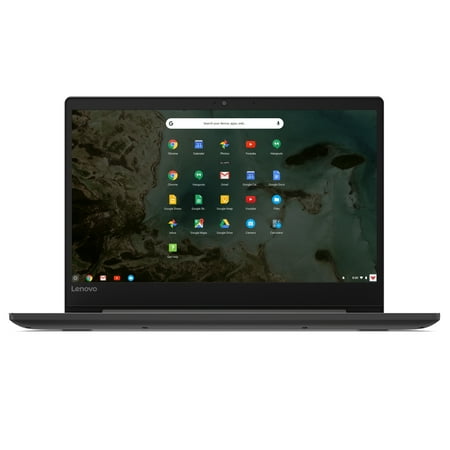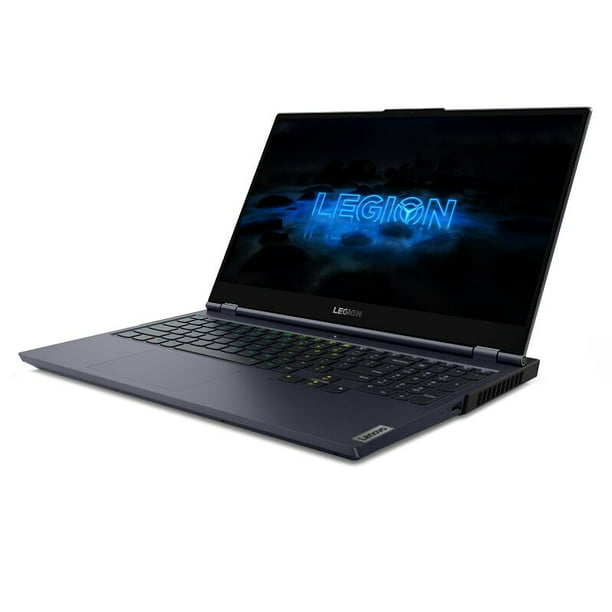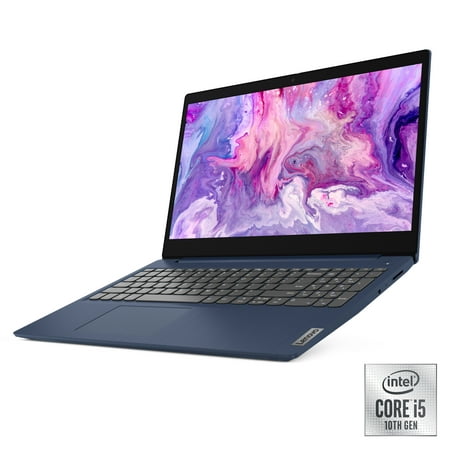Lenovo ideapad S340 13.3 Laptop, Intel Core i5-10210U Quad-Core Processor, 8GB Memory, 256GB Solid State Drive
10th Generation Intel Core i5-10210U Quad Core Processor. 13.3″ FHD IPS Anti-Glare Display. 8GB 1866MHz LPDDR3 OnBoard RAM. 256GB 2280 m.2 NVMe Solid State Drive. Integrated Intel UHD Graphics.
When it comes to portable entertainment, the Lenovo IdeaPad S340 13 explodes onto the screen and the scene with features focused around the joy of listening, watching, and experiencing your laptop connected, or disconnected with day-long battery life and rapid charging technology. Swap effortlessly between ‘Performance mode’ where your CPU takes charge and provides the quickest performance and ‘Stealth mode’ for the quietest user-experience with a simple keystroke. It’s all in the details, with the IdeaPad S340 13″” we corporated design elements to make it a more user-friendly experience like the soft touch surface, redesigned thermal airflow and a new keyboard layout maximizing your space and access to the most used keys.The IdeaPad S340 13″” comes packed with flavor from a soft color palette with supercharged graphics powering a nearborderless Full High-Definition display with 300 nits brightness, to best-in-class connectivity and a 2 x 2W speakers with Dolby Audio™ with dual microphones for clear chat quality. Have the mobility to slide in and out of work and play,from anywhere you happen to be with on-the-go battery life, and rapid recharging that lets you recharge to 80% in under an hour, or the time it takes to have lunch.
Operating System: Windows 10 in S Mode
Processor: 10th Generation Intel Core i5-10210U Quad Core Processor
Display: 13.3″ FHD IPS Anti-Glare Display
Memory: 8GB 1866MHz LPDDR3 OnBoard RAM
Internal Storage: 256GB 2280 m.2 NVMe Solid State Drive
Graphics: Integrated Intel UHD Graphics
Optical Drive: None
Audio: 2 x 2W Speakers with Dolby Audio, Dual Array Microphones
Battery Life: Up to 8 Hours
Wireless: 2×2 802.11AC Wi-Fi and Bluetooth 4.1 Combo
Webcam: None
Product Weight: 2.86 lbs
Color: Sand Pink
Additional information
| Processor Type | Intel Core i5-10210U |
|---|---|
| Hard Drive Capacity | 256 GB |
| Processor Speed | 1.6 GHz |
| Wireless Technology | Bluetooth; Wi-Fi; 802.11AC |
| RAM Memory | 8 GB Max. |
| Operating System | Windows 10 |
| Battery Life | 8 h |
| Screen Size | 13.3" |
| Features | Sand Pink |
| Assembled Product Dimensions (L x W x H) | 7.96 x 12.07 x 0.78 Inches |






by Chris
This laptop is amazing , it’s glowing Keys are really great and it works beautifully with good memory . It’s intel core (gen 10 core i7) is really hard to find (at least for me ) and it’s price is not that high for such a great product.
by Queen
This laptop is overall lit i love it its worth the money if its slow it just might be your internet or you just have a lot of crap on there the sound is great not too loud.
by Steve
I just loved my lappy LENOVO S340 ideapad features…designed with SSD it runs very speed and smooth… Even im using AUTOCAD software it is very Speed and working Excelent. After few years if i get a chance to buy Another laptop ill go for lenovo only and its for my lifetime. LENOVO IS BEST EVER. Thankyou guys for giving me this Opportunity.. Thankyou lenovo.
by James
Touchscreen is just amazing. Backlit keyboard in 2 modes it’s WOW. The awesome design and schema of all the components to work just as fast as it does it’s pretty amazing and it handles all my daily tasks and programs that I use on daily basis.
by Shua
Recently and the first time I am using Lenovo IdeaPad S340-15IIL – 15.6″ – Core i5 10th Generation version. It is really an amazing experience for me because this laptop is super-fast boot time is only 3.5 seconds and also Shut down time. Can u imagine how fast it is? Battery backup is up to 7 hours+ depends on moderate use.
I do not find any heat and lagging issues. moreover, I have taken expert opinion about it and found that nowadays only Lenovo Laptop provides such a premium quality at an affordable cost.
Design is attractive and builds quality feels a premium impression. that’s why my 3 years daughter said suddenly “your new laptop is very beautiful”.
Finally, I am very happy with my new Lenovo IdeaPad S340, so you can try also.
by Mykie
I love this laptop. It’s so fast, reliable and enjoyable to use. It starts up in seconds and programs load instantly. It’s lightweight, has good graphics and does everything I need for my writing, blogging and affiliate marketing. One of my favorite features is the lens cover for the Webcam ensuring my privacy. The hard drive is a wee small, but I added an SD card and am thrilled with how quickly it accesses the info on it. For the price, this laptop really can’t be beat. Happiest I’ve been with a Windows computer in years!
by John
Absolutely what I wanted! I was looking for a new laptop which was affordable, yet had all of the qualities I needed for work and personal use. The weight is light, yet sturdy. The screen is large enough for my weakened eyesight. The keyboard is comfortable and easy to the touch. I am able to use it with my work computer. All are compatible. During COVID-19, I am utilizing 2 computers and 3 screens for telehealth, as I am a mental health therapist. Thank you!
by Allison
This is the newer version of the laptop I had for 12 years! I love it. I am glad Lenovo didn’t make changes to the keyboard, because that is one of my favorite features of this machine as compared to many other in the same price range. It’s fast, easy to use, and meets my needs for memory and processing as a remote work machine.
by Mike
For a such a cheap price, the IdeaPad S340 is an excellent budget laptop giving you a decent amount of style and features. You get a nice keyboard, long battery life and good set of ports. Performance is what you would expect so you will be limited to basic tasks at this entry-level, so look for a more powerful model if that’s an issue. The main downside here is the poor screen, though.
by Hodge
Decided on Ideapad S340 for features including 15”screen, Dolby sound, quad core processor. Countless customer reviews led me to believe this laptop would include backlit keyboard and touch screen. Lenovo provides interactive and easy set-up. Despite lacking backlit keyboard and touch screen, the machine runs quickly, smoothly and is not loaded with frills is user friendly has great sound and volume. The only real criticism I share is the screen quality is not great. It’s a matte finish and catches a lot of glare. The screen folds out to help minimize glare, but it is hard to find the best angle for viewing. This laptop is great overall! It just needs upgrade to enhance screen quality.